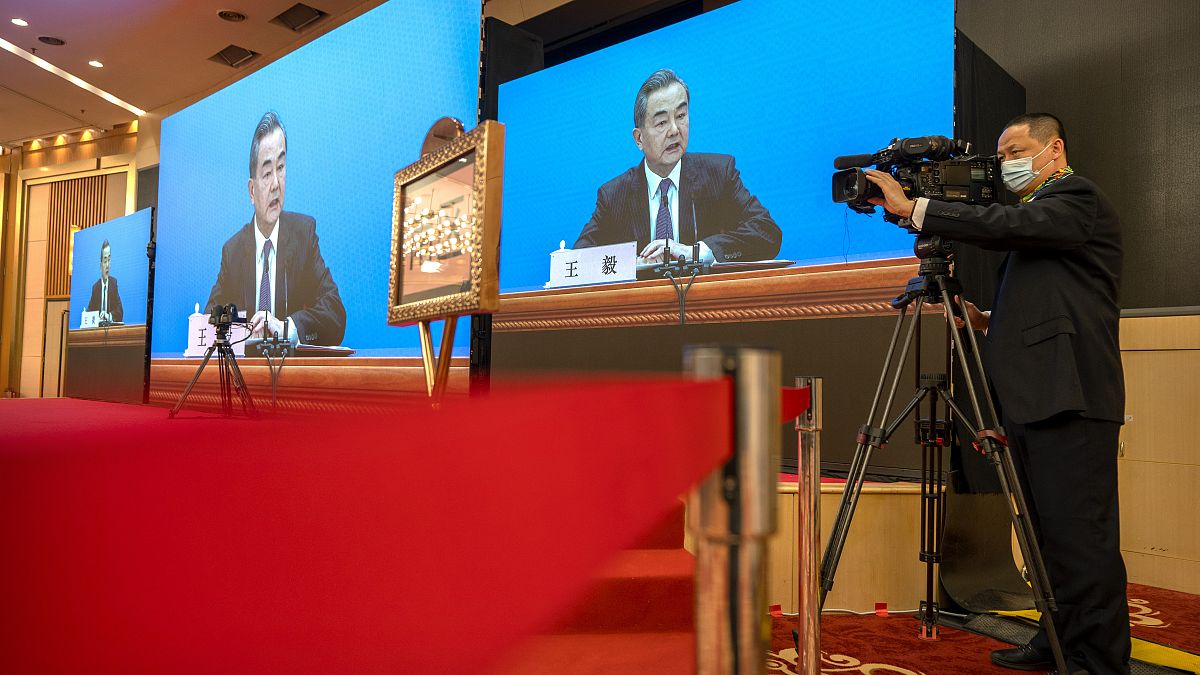The weeklong meeting of the National People’s Congress, which rubber stamps policies approved by the Communist Party leadership, provides a window into government priorities.
Midway through its annual session, China’s ceremonial parliament is focusing on boosting the economy, building self-reliance in technology and further squeezing room for political opposition in Hong Kong.
The weeklong meeting of the National People’s Congress, which rubber stamps policies approved by the Communist Party leadership, provides a window into government priorities.
Growth target
The party set a growth target of “over 6 per cent”, as the world’s second-largest economy shrugs off the effects of the coronavirus pandemic. Last year, it departed from practice and didn't set a target because of pandemic-related uncertainty.
The target was lower than the 7per cent to 8 per cent that forecasters expected and seen by some as signalling a shift from quantity to quality growth, including efforts to expand the green economy.
Technology
Premier Li Keqiang vowed Friday to “work faster” to develop tech capabilities seen as a path to prosperity, strategic autonomy and international influence. The party is focused on becoming a global competitor in telecoms, electric cars and other profitable areas.
Its tactics have inflamed trade tensions with the U.S. and Europe and also raised security concerns. China has poured massive computing and human resources into artificial intelligence, including sometimes controversial technologies such as facial recognition.
Closing down dissent in Hong Kong
The congress has been given draft legislation that would give an Election Committee dominated by businesspeople and other pro-Beijing figures a role in choosing the members of the Hong Kong legislature.
Wang Chen, a deputy chairman of the congress, said the committee would choose a “relatively large” share of the Legislative Council and have the right to vet all candidates. He did not provide specifics. A spokesman for the congress said that Beijing wants “patriots ruling Hong Kong,” fueling fears opposition voices will be shut out of the political process.
Military
The government announced a 6.8% rise in military spending to 1.4 trillion yuan (€182 billion), continuing a tradition of roughly tracking the economic growth target. Analysts say actual military spending is up to 40% more than the reported figure, the world’s second-highest after the United States.
Recent years have seen a massive expansion of China’s naval capabilities as it seeks to assert its claims in the South China Sea. A deadly clash with India last year underscored the potential for conflict over their disputed border, while America's prominent role in Asian security and its support for Taiwan, the self-governing democracy that China claims, raise the threat of conflict with the U.S.
Taiwan
At an annual news conference on the sidelines of the session, Foreign Minister Wang Yi demanded the Biden administration reverse former President Donald Trump’s “dangerous practice” of showing support for Taiwan.
China's claim to Taiwan, which split with the mainland in 1949, is an “insurmountable red line,” he said.
Separately, Wu Qian, a spokesperson for the Defense Ministry and a delegate to the congress, said that China would not “renounce the use of force and reserve the right to take whatever measures are necessary.”
The U.S. State Department expressed concern about Chinese attempts to intimidate Taiwan and other neighbours and said, “Our support for Taiwan is rock-solid."
Green initiatives
The party pledged to reduce carbon emissions per unit of economic output by 18 per cent over the next five years, in line with its goal for the previous five-year period.
Environmentalists say China needs to do more. President Xi Jinping, the leader of the Communist Party, pledged last year to ensure that the country would be carbon neutral by 2060. Achieving that will require huge investments in clean energy for an economy that gets 60 per cent of its power from coal.
Chinese leaders are also pushing to reduce waste, especially of food, and increase recycling to handle the mountains of paper and plastic produced by a burgeoning consumer economy.
What's next
The annual session, which has been reduced from two weeks to one because of the pandemic, finishes on Thursday. Li will give the premier's annual news conference after the congress closes.


